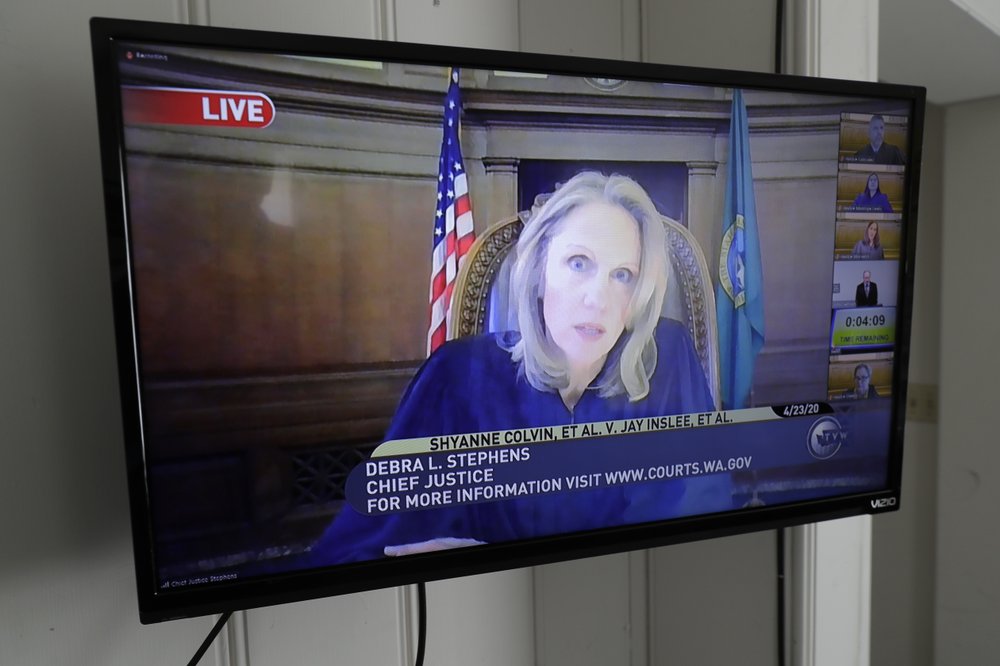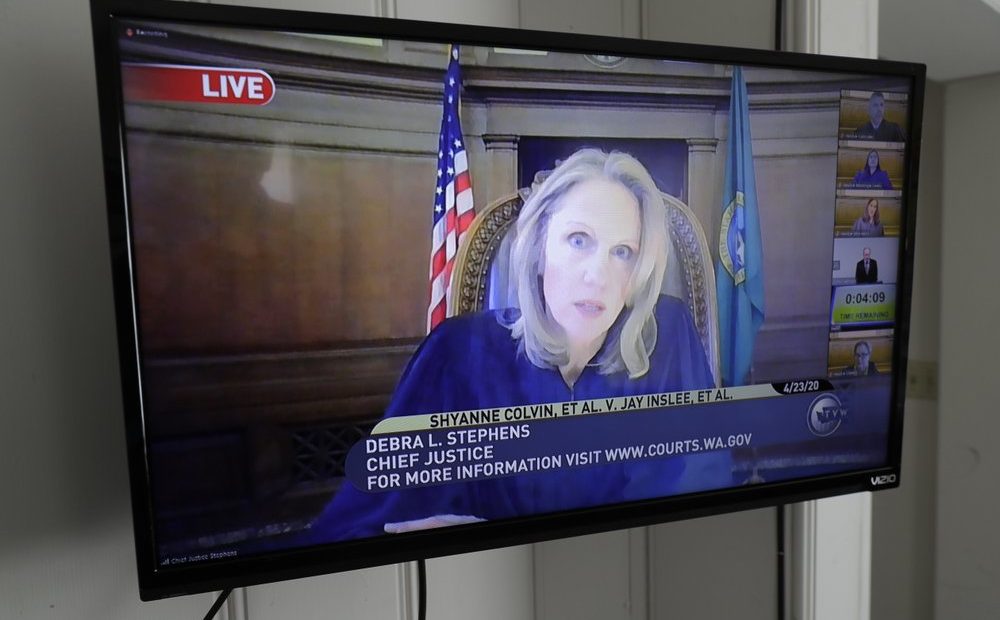
Washington Supreme Court Denies Prisoners’ Request For Release Over Coronavirus Fears
READ ON
BY MARTHA BELLISLE / AP
A divided Washington Supreme Court on Thursday denied a request to release thousands of inmates from the state’s prisons due to the coronavirus outbreak after hearing oral arguments earlier in the day in their separate chambers using Zoom technology to facilitate social distancing.
The justices, in a 5-4 decision, said that the prisoners who had sued failed to show that the Department of Corrections was not properly addressing the risk of COVID-19.
A lawyer representing the inmates had told the court that people who are incarcerated don’t have the ability to keep themselves safe. The plaintiffs wanted inmates who were older, had health issues or were close to their release date to be set free.
“We can all hold out in our homes. We can decide who we allow into our homes. People in prison do not have that option,” Nicholas Straley said.
Assistant Attorney General John Samson said the corrections department has handed out face masks, created separated sleeping space, tested 300 inmates for COVID-19 and released some offenders, but releasing thousands more could pose a threat not only to the public but also to the inmates, who could end up homeless.
“If there are unconstitutional conditions, the remedy is not release from confinement, the remedy is to fix those unconstitutional conditions and we would submit that they have not even made that first step of showing unconstitutional conditions,” Samson argued.
Straley on Thursday evening said in a statement that his team was extremely disappointed with the high court’s decision.
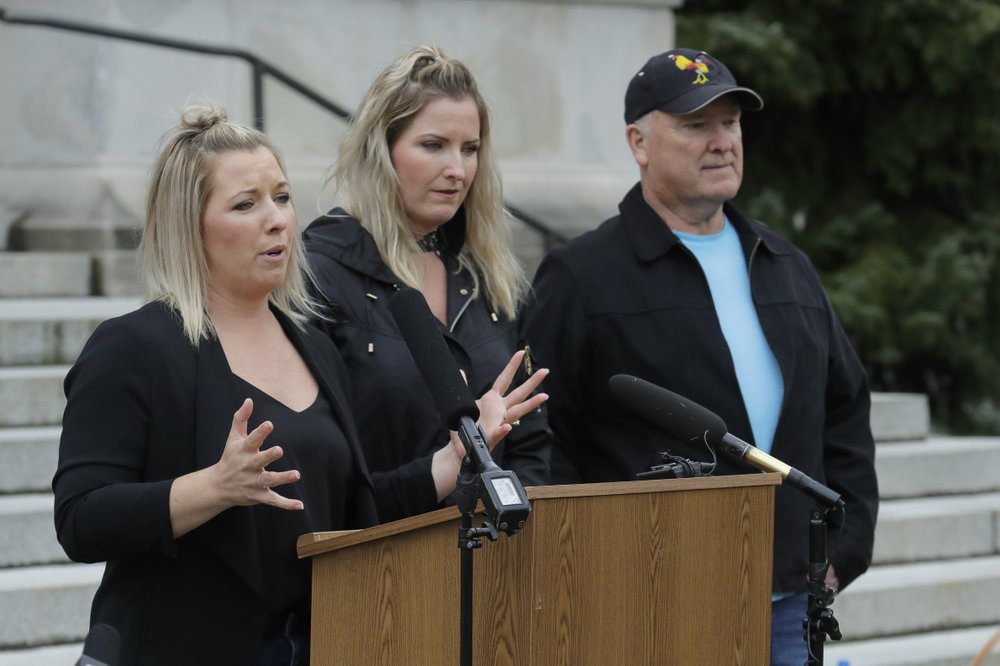
Tonya Fenton, left, stands with her sister, Trisha Woods and their father, Fred Binschus, April 23, 2020, outside the Temple of Justice at the Capitol in Olympia, Wash. Fenton’s mother Julie was murdered in 2008 and the three joined others in speaking out against the release of prison inmates. CREDIT: Ted S. Warren/AP
“All of the evidence in the court record showed that the Governor’s and the Department of Corrections’ (DOC) actions to date have been insufficient to meet public health recommendations,” Straley said. “Uniformly, national public health and correctional experts agree that to protect people in prison from the virus, a significant reduction of the prison population is necessary.”
As the justices heard arguments, conservative lawmakers, law enforcement officials and some victims held news conferences on both sides of the state to protest the release of some offenders.
At least 24 corrections employees and 13 inmates have tested positive for COVID-19, almost 100 offenders were placed in isolation and more than 1,000 are being quarantined. The majority of the positive cases occurred at the Monroe Correctional Complex where seven staff and 12 inmates have the disease.
After the virus hit the facility, the second largest in Washington, inmates filed a petition with the Supreme Court asking the justices to order Gov. Jay Inslee and Corrections Secretary Stephen Sinclair to release inmates who are older than 60, have underlying conditions and are within 60 days of their release date.
In an unanimous ruling on April 10, the justices ordered the state to devise a plan to protect inmates from the disease. Several days later, Inslee announced plans to release almost 1,000 non-violent offenders who are close to their release date.
As of Wednesday, about 41 inmates received work release furloughs, 293 had their sentences commuted and another 600 were on a list to be considered for a release into the community using electronic monitoring.
Straley, the inmate’s lawyer, argued that many more offenders should be let out in order to provide space for the inmates who can’t safely be released.
The department has identified about 7,800 people who are within 18 months of release, Straley said. About 3,400 of them have no victim notification requirement as part of their sentence, he said.
As the justices heard these arguments, Sen. Keith Wagoner, R-Sedro-Woolley, law enforcement officials and crime victims held a news conference outside the Supreme Court in Olympia to protest the release of offenders. Among the victims was Fred Binschus, the husband of Julie Binschus, who was killed in 2008 when Isaac Zamora went on a shooting spree, killing six people and wounded four others.
At the same time, Spokane-area Republicans Sen. Mike Padden and Rep. Jenny Graham made similar arguments at the Spokane courthouse.
Samson said the department has to consider the concerns of victims before releasing inmates, but they also have serious concerns for the people who are released.
“A large majority of individuals under normal circumstances become homeless,” Samson said. If they release several thousand inmates all at once, “the resources are going to be broke and the system’s going to be broken.”
AP photographer Ted Warren contributed to this story from Olympia.
Copyright 2020 Associated Press
Related Stories:
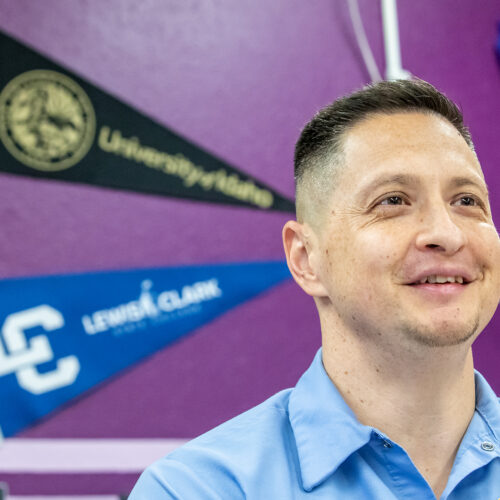
Prison education program is giving incarcerated people in Idaho a second chance
A newly approved prison education program is helping inmates in Orofino, Pocatello and Boise prepare gain confidence and prepare for life after they’ve served time
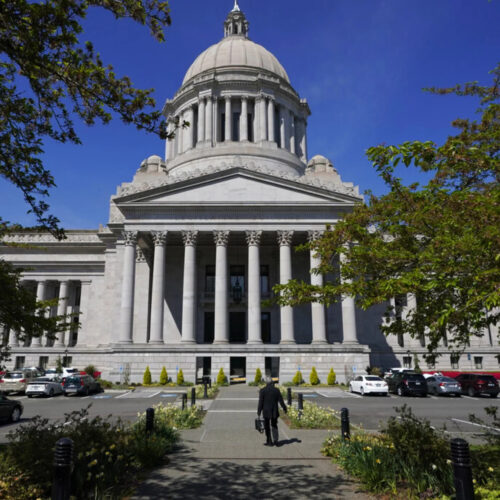
Two bills could make it easier for people in Washington state custody to vote, politically organize
A person walks near the Legislative Building, Wednesday, April 21, 2021, at the Capitol in Olympia, Wash. (Credit: Ted S. Warren / AP) Listen (Runtime 1:04) Read While people who
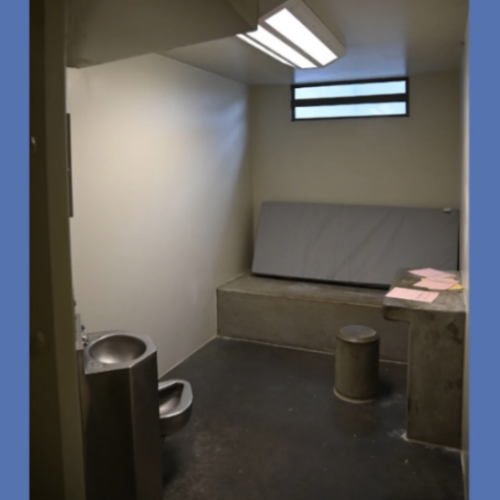
Money, politics, debate over crime victims: What’s stalling prison reforms in Olympia
By: Jeanie Lindsay, Northwest News Network Prison reforms were among the many issues considered by lawmakers in Olympia this year. But, once again, measures aimed at resentencing and solitary confinement

